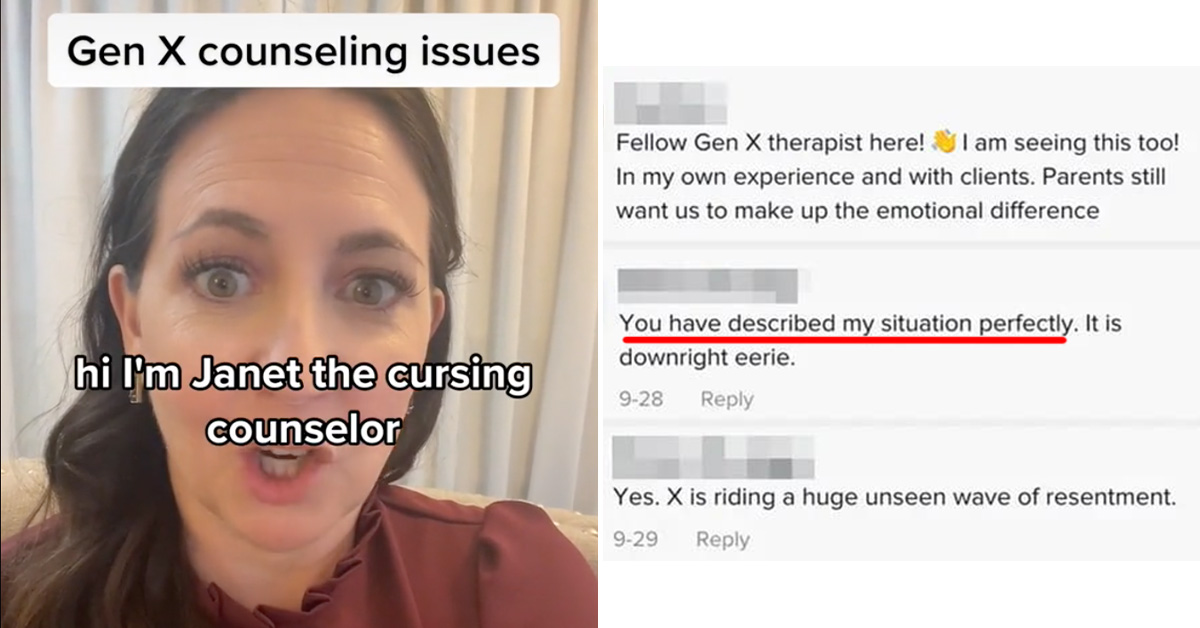Counselor Reveals Trend Among Gen X Clients Who Have Complicated Feelings About Their Parents In Viral TikTok
Much of the generational conversation nowadays revolves around millennials and boomers, but we often forget the folks born between 1965 and 1980, or Generation X.
One Texas-based counselor is changing that by using TikTok to discuss a trend she’s noticed in her Gen X clients.
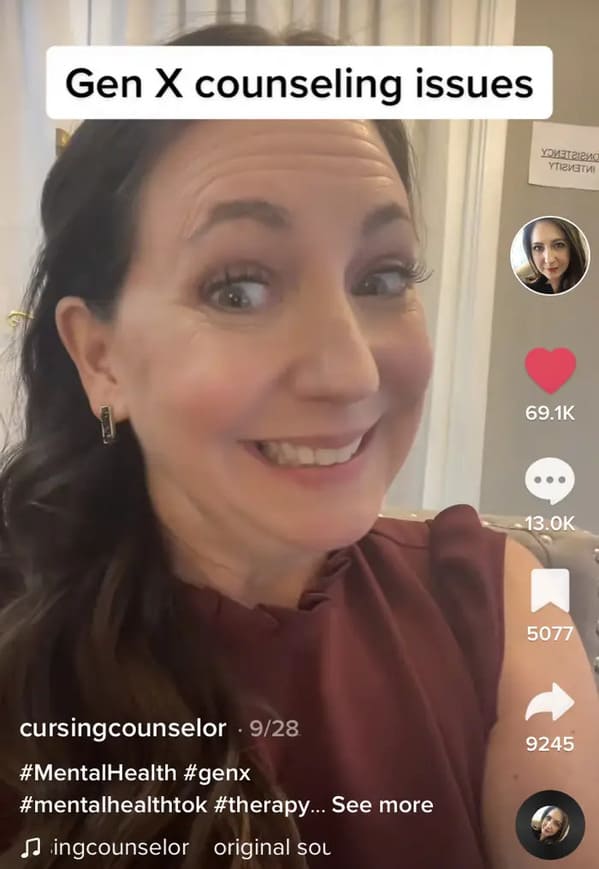
Meet Janet Martinez, MS LPC, or @cursingcounselor on TikTok, she’s been a counselor for more than 20 years, and she’s ignited a conversation about Gen X’er’s feelings regarding elder care for their parents.
“I’m Generation X. In my generation, we were basically feral… We sort of raised ourselves. Our parents were very busy doing their own things, lots of working parents, especially newly working parents, and so we were latchkey kids, and we were on our own a lot.”
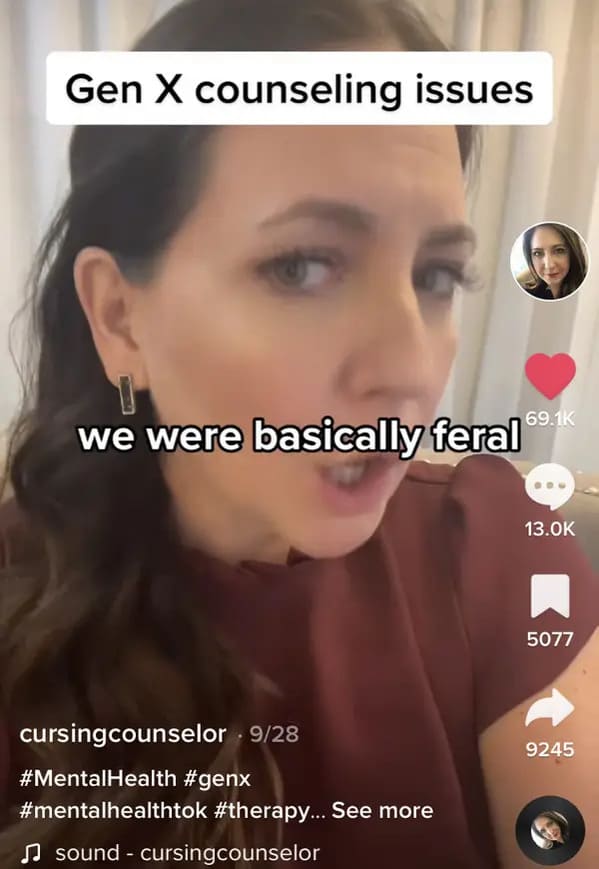
While acknowledging that being busy as a parent is unavoidable, Martinez explains that the emotional neglect many Gen Xers experienced is now taking a toll.
“It was the emotional stuff, like that we didn’t have a lot of people to talk to or our emotions were not seen as important. And so now this is what’s coming up in counseling.”

“Now our parents are older and they need us, and many of us are struggling because we were not taken care of. But now we are expected to take care of [them], and that’s creating a lot of issues.”
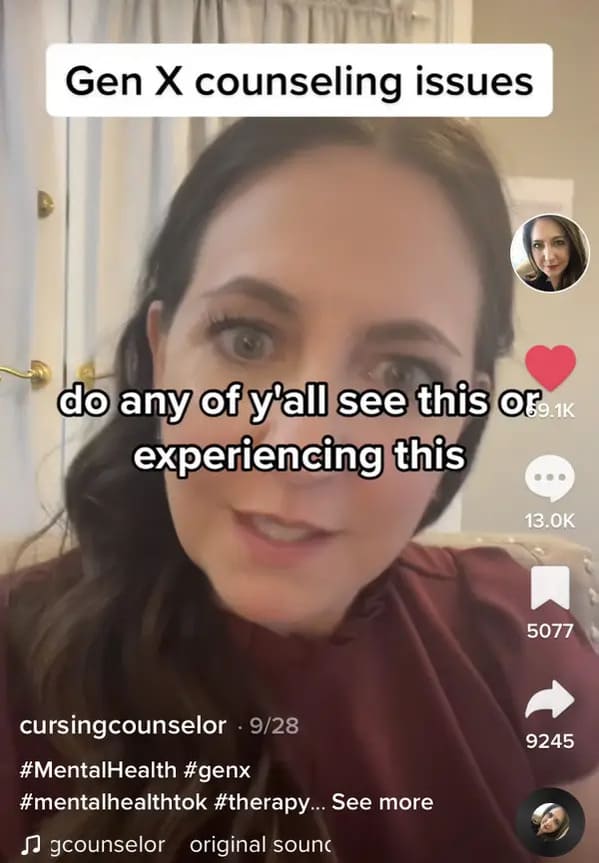
Fellow Gen X’ers and Gen X counselors shared how they can relate in the comments.
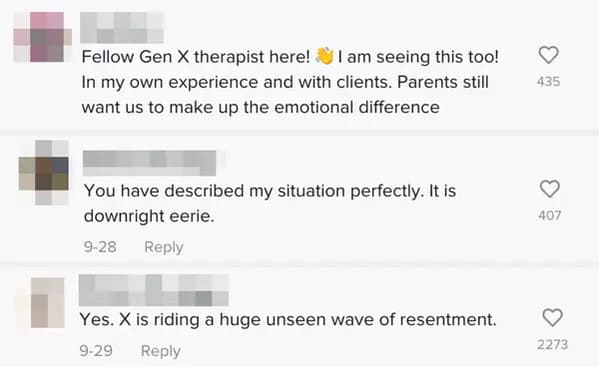
Others revealed they’ve been trying to do better than their parents did. Some commenters also said they can’t relate because they had great parents.
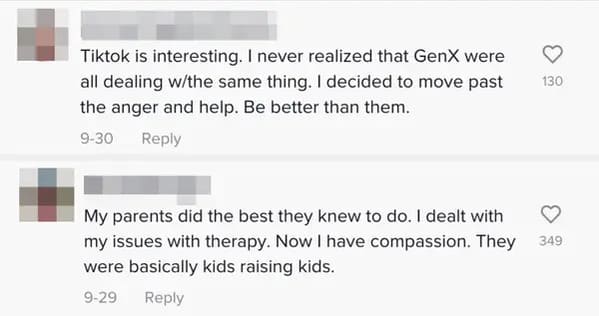
In an interview with Buzzfeed, Martinez said,
“This wasn’t everyone’s experience, but it was a lot of people’s experience. Also, corporal punishment was still the main way kids were disciplined and many were abused because their parents thought that was the best way to get kids in line. ‘Gentle Parenting’ was not heard of. Gen X are now parents themselves and have remarked to me that they used to give their parents excuses but now realize ‘it wouldn’t have been that hard’ to show up for us the way we show up for our kids.”

She also notes that limiting or cutting off parental contact may be a better option for some clients.
“Some clients have been through so much past trauma that they have to develop boundaries to protect their mental health. The last group are some that have had to resort to no contact altogether. This is rare, but with narcissistic parents or those unwilling to accept boundaries, it is the only option.”

Martinez concludes with this message,
“It is okay to have those feelings and feel conflicted. Finding support in counseling is very helpful because you have a chance to talk to someone who doesn’t have a ‘dog in the fight’ and will help you approach the issue without judgment. If they experienced abuse and neglect or addiction, I highly recommend self-help books like Codependent No More, Gifts of a Challenging Childhood, and Self-Compassion.”
You Can View The Full Video Here:
@cursingcounselor #mentalhealth #genx #mentalhealthtok #therapy #trends #mentalhealthmatters

